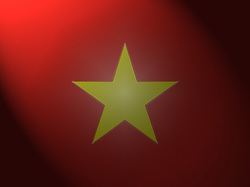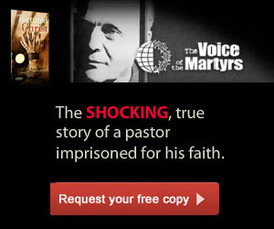
A five-day tour by Australian Christian evangelist and motivational speaker Nick Vujicic was permitted to take place in Vietnam from 22 to 26 May, despite national restrictions on religious activities. Vujicic, who was born without arms and legs, spoke to 75 000 people at seven official events, three of which were shown on national television, as part of a ‘World Outreach’ tour which has an explicitly evangelistic aim, to “share the Good News of Jesus Christ”. At the end of his tour, Vujicic also preached at Gia Dinh Church in Ho Chi Minh City.
According to local reports, Vietnamese Christians were both elated by the response to the tour and baffled as to how and why a Christian evangelist was allowed to speak in a country which still maintains tight control over religious activities. The new Decree 92 on religious activities and organizations which came into effect this January places strict limitations on the delivery of “sermons” outside religious facilities (Article 3), and on the religious activities of foreigners in Vietnam (Articles 39-40). Christian groups who have carried out evangelistic events such as concerts and Christmas celebrations have been harassed, threatened and even beaten by police. The government’s approval of Vujicic’s tour was therefore a significant departure from the usual treatment of evangelistic speakers, and an exceptional case which enjoyed the support of a wealthy Buddhist businessman and a Communist Party official.
However, while many observers have celebrated the high spirits produced by the tour, some have criticized the restrictions placed on Vujicic in Vietnam: the speaker was not permitted to preach basic Christian precepts, and his interpreter was cautioned about using certain words. There is also some debate about whether one interpreter deliberately replaced some of Vujicic’s words with different terms, omitting references to God, Christianity and religion, although other members of the audience say references to God and heaven in an event in Hanoi were interpreted correctly.
CSW’s Chief Executive Mervyn Thomas said, “The Vietnamese government’s decision to allow Nick Vujicic to speak in Vietnam appears to be a positive move towards improving the level of freedom of religion or belief in the country. Although it is unlikely that this event indicates a change in policy towards religion, it has sparked discussion about faith and belief amongst the Vietnamese youth which could potentially pressure the government to rethink the state’s tight control of religious activities. We urge the authorities to allow both Vietnamese and overseas Christian speakers to share their life stories and their faith freely in Vietnam, without censorship. We also encourage the government to allow Vietnamese citizens to openly discuss and debate matters relating to religion, faith and belief, both online and offline”.
However, while many observers have celebrated the high spirits produced by the tour, some have criticized the restrictions placed on Vujicic in Vietnam: the speaker was not permitted to preach basic Christian precepts, and his interpreter was cautioned about using certain words. There is also some debate about whether one interpreter deliberately replaced some of Vujicic’s words with different terms, omitting references to God, Christianity and religion, although other members of the audience say references to God and heaven in an event in Hanoi were interpreted correctly.
CSW’s Chief Executive Mervyn Thomas said, “The Vietnamese government’s decision to allow Nick Vujicic to speak in Vietnam appears to be a positive move towards improving the level of freedom of religion or belief in the country. Although it is unlikely that this event indicates a change in policy towards religion, it has sparked discussion about faith and belief amongst the Vietnamese youth which could potentially pressure the government to rethink the state’s tight control of religious activities. We urge the authorities to allow both Vietnamese and overseas Christian speakers to share their life stories and their faith freely in Vietnam, without censorship. We also encourage the government to allow Vietnamese citizens to openly discuss and debate matters relating to religion, faith and belief, both online and offline”.


 RSS Feed
RSS Feed